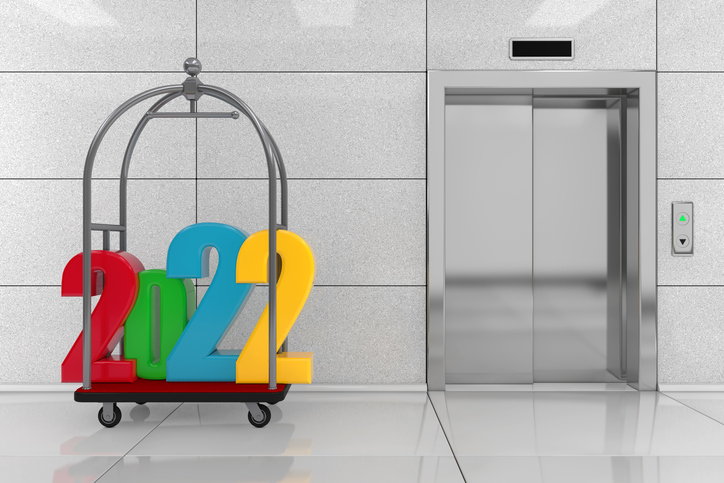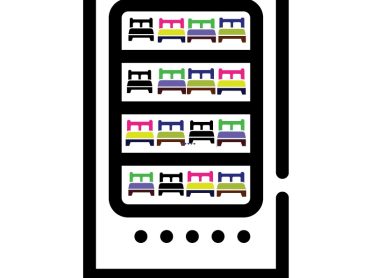Taking Stock of the Post-Pandemic Landscape and Moving Forward
When Charles Dickens penned this perennially famous best-of-times-worst-of-times opener to “The Tale of Two Cities” in 1859, one can wonder if he had a fever dream of 2020 and its longtail effects for hotels. While coastal resorts have experienced record ADR, midtown full-service properties have floundered. The group and convention segment business has yet to be rekindled and corporate activity is sputtering. Internationally sourced business is still basically sidelined. Net, leisure guests, usually within driving distance of any property, have been the short-term panacea for our industry.
Meanwhile, properties are frustrated over rising labor costs, an inability to bring back members at the supervisorial level and for many a sheer lack of available staff at any cost – ‘the great quitting’ as it’s now being called. With supply chains disrupted, purchasing backorders are becoming commonplace. Cost inflation is a common concern and, of course, the politicized COVID-19 vaccination requirement situation dominates many business forecasts.
With this backdrop, why are we so optimistic for the collective future of hospitality? First, the construction pipeline is approaching record levels and technology has reached the tipping point of genuine cost-effectiveness for most every hotel. Many of the issues that we are facing, labor shortage for one, are not going away. But the skillful operator will find a way through this jungle and look back at this period as a monumental pivot point for hospitality management and bottom-line savings.
The Labor Dilemma
Examine this chain reaction. Pandemic-based staff reductions lead to furloughs and layoffs. Idle workers, armed with generous government support, re-examine their circumstances then opt to retrain or seek new ventures. Gig economy jobs fuel immediate part- or full-time options. Workers today think less about corporate loyalty and more about their own personal balance.
Having interviewed many former frontline staffers of recent, the best question that summarizes this mental shift runs along the lines of, “Why work so hard in an exhausting, stressful and largely unappreciative environment that all you end up doing in your downtime is emotionally decompress from work?”
The restive jolt that was the pandemic for many was also a moment of clarity. Do you live to work? Or can you find a way to work to live?
As a result, when hotels started to reopen and workers were recalled, staff asked themselves why they should work in a hectic environment for roughly 20 bucks an hour, often less. We’ve heard of hotels offering to increase base wage rates for hourly workers by four or five bucks, often with only limited conversion success. This type of wage pressure is not a minor variation to the financial forecast. Only those that can afford it – that is, the luxury segment – can maintain service levels. Still many others are dipping into their PIP reserves to stay afloat.
Don’t think for a minute that it is only hourly staff that are under pressure. Salaried workers now tend to consider their employment as a job versus a career – merely a steppingstone to a better or bigger job at another property. Management ranks have been thinned or are suffering from long-term succession planning problems, with many managers now wearing more than one hat as they attempt to cover multiple responsibilities. Continued uncertainty means that operators are holding the line on further management staffing, but two severe consequences of this lack of coverage may be burnout and turnover.
Think TNT as the Solution
No, not dynamite, but rather ‘teams and tech’. Teams address the labor crisis through a concentration on human resource techniques to ensure each member of your organizational structure is valued on an emotional level, as coupled with supplemental outsourcing. Technology seeks out those solutions that ease pressure on your entire team through process automation and the elimination of repetitive, non-stimulative tasks.
All operators need to learn how to survive with lean teams, recognizing that your team members are the property’s most valuable asset. Engagement is critical to boost productivity and maintain their commitment to the tasks at hand. In a word, think ‘intrapreneur’ whereby only those people who are fully engaged will be the ones to bring new ideas forward while all others will simply do their jobs to the minimum expected standard.
Your team’s time is a precious asset which must be respected, not treated as a commodity. For instance, start with better meetings. First, for each meeting, set a fixed date and time using scheduling software. Next, follow the ‘stand up’ rule with no meeting lasting longer than you can comfortably stand – about 30 to 45 minutes. All meetings must have a specific agenda distributed to participants in advance. Allow invitees to opt out as necessary. And lastly remember to finish each meeting with an action plan.
Now, it’s time for your entire executive team to step up to the plate and make a difference. Consider apprenticeships as junior management positions and mentorships for those already within your organization. Leadership and job-skills training will help retain staff as team members encourages career-orientation and commitment. Recognition and team building events create a better sense of camaraderie. Perks such as complementary nights are cost-effective rewards. While flexible hours may be difficult to implement universally, allow departments to make their own accommodations. Referral bonuses can often deliver much needed additional staff at all levels. And lastly, look at the back of house conditions that your staffers call their home. When was the last time you invested in making it more inviting?
Use Outsourcing as Support
Outsourcing often provides a temporary solution to staffing shortfalls. Your reservations team no longer has to be on property. Reservation outsourcing not only reduces staff but offers the advantage of 24-hour operations to thus further reduce lost revenue from abandoned calls.
Housekeeping is typically your largest labor department. While difficult to fully outsource, consider teams of an outsourced ‘helper’ combined with a staff housekeeper to turbo-charge efforts. Janitorial services for public areas are a logical option in times when hiring is challenged. An interesting concept in outsourcing is in foodservice, where meals can be prepackaged to eliminate in-kitchen requirements.
On the management side, just as you probably use a payroll service, almost all accounting services can be outsourced. Moreover, external services can be used to manage benefits, purchase orders, government grants and other accounting related activities. Outsourced recruitment for management positions provides for expert evaluation of capabilities as well as meeting diversity requirements.
Technology Improves Efficiency
If the pandemic has done anything positive for the hotel industry, it is the universal guest acceptance of contactless activities such as check-in and check-out. This is not surprising as the grocery industry has preconditioned the guest to this form of transaction.
Mobile technology now has the ability to add an SMS function that further reduces labor demands on the front desk. Keys can be distributed directly through to the mobile device as well as to upsold amenities like the fitness center, pool, locker rooms or minibar. Every service that can build total guest revenue (TRevPAR) can and should be mobile-available, including dining reservations, gift shop purchases or event space bookings. While the number of vendors offering this service renders it ubiquitous, the option also exists to combine functionality into a single application.
Back of House Solutions
Obvious to many already, housekeeping management systems optimize the efforts of your top labor department, providing shift automation and routing your teams so that you can turn rooms inventory efficiently. Systems integrate with your PMS and other departments such as engineering and procurement. They also can sync directly to payroll for deeper analysis. Larger properties might wish to consider dedicated property maintenance solutions that manage resources, escalate work orders, track issues by room or equipment type and register warranties, and automate inventory levels.
Artificial intelligence can bolster revenue management through the analysis of past booking trends and competitive offers to adjust room rates instantaneously. Here the comp set is not fixed but adjusts based upon which properties guests are searching. AI-powered data mapping solutions ensure that all your property’s information is accurately reflected across every booking platform. Chatbots respond to most every repetitive guest inquiry, freeing your staff for the more complex issues.
Available programs offer cross-platform online reputation management with easy-to-understand admin tools. Guest satisfaction surveys can be fine-tuned based upon what the guest experienced. Thus, the results are better and more useful. Marketing automation like this allows you to drill down through your CRM to deliver the right message at the right time to the right guest. In effect, your property becomes a one-on-one marketer without the need for excessive labor in this department.
Build your tech stack judiciously. You need a business strategy. Remember that integration is critical. All technology requires training and a commitment to delivery.
To close, Anil Taneja, Managing Director of Palm Holdings, offers these words of encouragement, “The pandemic has reminded us that this business thrives on pennies. Whether it’s one saved or one added to the ADR, each makes the world of difference.”



